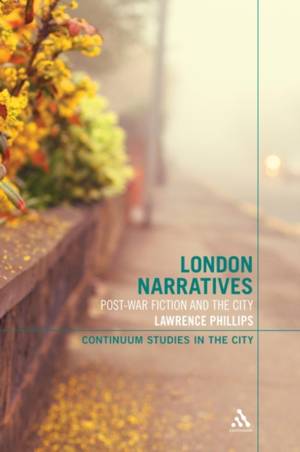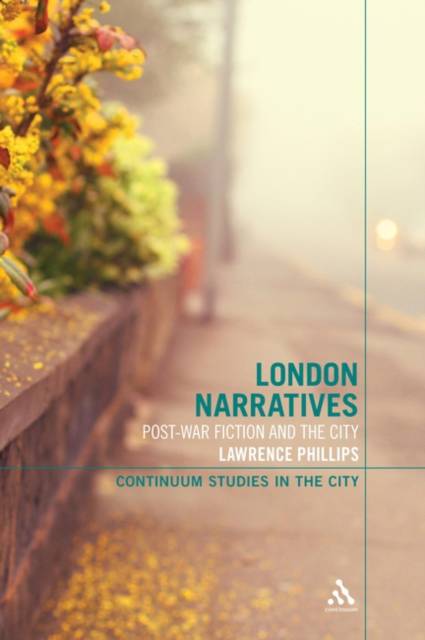
Je cadeautjes zeker op tijd in huis hebben voor de feestdagen? Kom langs in onze winkels en vind het perfecte geschenk!
- Afhalen na 1 uur in een winkel met voorraad
- Gratis thuislevering in België vanaf € 30
- Ruim aanbod met 7 miljoen producten
Je cadeautjes zeker op tijd in huis hebben voor de feestdagen? Kom langs in onze winkels en vind het perfecte geschenk!
- Afhalen na 1 uur in een winkel met voorraad
- Gratis thuislevering in België vanaf € 30
- Ruim aanbod met 7 miljoen producten
Zoeken
Omschrijving
The post-war redevelopment of London has been the most extensive in its history, and has been accompanied by a dramatic social and cultural upheaval. This book explores the literary re-imagining of the city in post-war fiction and argues that the image, history, and narrative of the city has been transformed alongside the physical rebuilding and repositioning of the capital. Drawing on the ideas of Michel de Certeau, Henri Lefebvre, Anthony Vigler and others as well as the latest work on urban representation, this book is an important contribution to the study of the intersection between place, lived experience, and the literary imagination. Texts covered include novels by some of the most significant and lesser known authors of the period, including Graham Greene, George Orwell, J. G. Ballard, Stella Gibbons, David Lodge, Doris Lessing, B. S. Johnson, Sam Selvon, V. S. Naipaul, Peter Ackroyd and Iain Sinclair.
Specificaties
Betrokkenen
- Auteur(s):
- Uitgeverij:
Inhoud
- Aantal bladzijden:
- 192
- Taal:
- Engels
- Reeks:
Eigenschappen
- Productcode (EAN):
- 9780826426734
- Verschijningsdatum:
- 3/11/2011
- Uitvoering:
- Paperback
- Formaat:
- Trade paperback (VS)
- Afmetingen:
- 156 mm x 234 mm
- Gewicht:
- 263 g

Alleen bij Standaard Boekhandel
+ 176 punten op je klantenkaart van Standaard Boekhandel
Beoordelingen
We publiceren alleen reviews die voldoen aan de voorwaarden voor reviews. Bekijk onze voorwaarden voor reviews.









